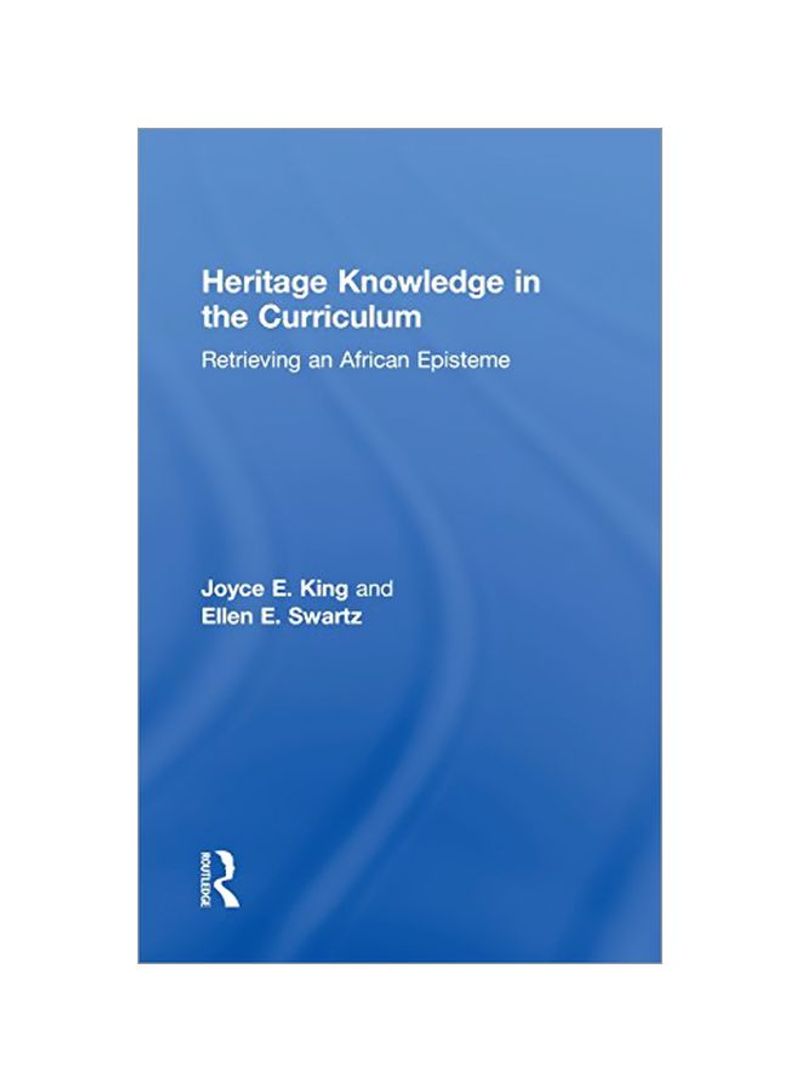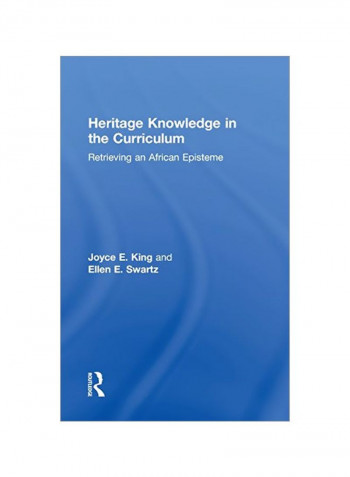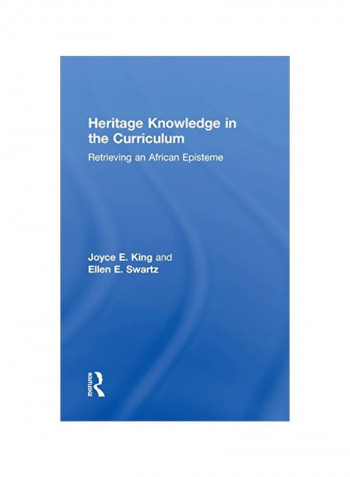Heritage Knowledge In The Curriculum: Retrieving An African Episteme Hardcover
Recommend
Sort by
Rating
Date
Specifications
Author 1
Joyce E. King
Book Description
Moving beyond the content integration approach of multicultural education, this text powerfully advocates for the importance of curriculum built upon authentic knowledge construction informed by the Black intellectual tradition and an African episteme. By retrieving, examining, and reconnecting the continuity of African Diasporan heritage with school knowledge, this volume aims to repair the rupture that has silenced this cultural memory in standard historiography in general and in PK-12 curriculum content and pedagogy in particular. This ethically informed curriculum approach not only allows students of African ancestry to understand where they fit in the world but also makes the accomplishments and teachings of our collective ancestors available for the benefit of all. King and Swartz provide readers with a process for making overt and explicit the values, actions, thoughts, and behaviors reflected in an African episteme that serves as the foundation for African Diasporan sociohistorical phenomenon/events. With such knowledge, teachers can conceptualize curriculum and shape instruction that locates people in all cultures as subjects with agency whose actions embody their ongoing cultural legacy.
ISBN-13
9780815380429
Language
English
Publisher
Taylor & Francis Inc
Publication Date
24 Apr 2018
Number of Pages
212
About the Author
Joyce E. King is the Benjamin E. Mays Endowed Chair of Urban Teaching, Learning and Leadership at Georgia State University, USA. Dr. King served as the 2014-2015 President of AERA, chaired the AERA Commission on Research in Black Education (CORIBE), and served as editor of the resulting volume, Black Education: A Transformative Research and Action Agenda for the New Century. Professor King was presented the Distinguished Career Contribution Award from the AERA Committee on Scholars of Color in Education. She has received fellowship awards from the American Council on Education, the W. K. Kellogg Foundation, and the National Institutes of Mental Health. She received the Distinguished Fellowship Award for Research and Leadership in Critical Studies in Education from the University of Auckland and "The Living Treasure of Africans in the Diaspora in Education and Social Sciences Award" for 20 Years of Participation in the Black Studies Research Center at the Federal University of Sao Carlos, Brazil. Ellen E. Swartz is an Independent Consultant and Presenter of workshops and courses on culturally-informed curriculum and pedagogy for public school staff, colleges, universities, teacher centers, publishers, and unions at the local, state, and national levels. Previous positions include Associate Professor and Frontier Chair in Urban Education, Nazareth College; Assistant Professor, Niagara University; Multicultural Curriculum Coordinator, and Professional Development Consultant, Rochester Teacher Center; Director of School Partnerships and Faculty, Pace University; and Coordinator, Multicultural Project, Rochester City School District
Author 2
Ellen E. Swartz
Editorial Review
This book is a very welcome addition to knowledge. It offers a powerful rendition of the rich intellectual traditions of African cultural knowledge base as a powerful source of African Indigenous episteme and their place in curriculum development in Diasporic contexts and beyond. The book clearly adds to emerging critical scholarship on the diversity of cultural heritage knowledge that all students need to be abreast with in order to comprehend the histories of ideas, events and developments that have shaped our complex and intertwined human journeys.' -George J Sefa Dei, Professor of Social Justice Education OISE, University of Toronto & Fellow, Royal Society of Canada 'Heritage Knowledge in the Curriculum: Retrieving an African Episteme continues and extends the brilliant body of educational work done by two of the finest scholars in the field. I am deeply impressed by Joyce E. King and Ellen E. Swartz's appreciation for the African episteme in reconnecting students to authentic knowledge. This book will become the standard by which all others in the field will be evaluated.' -Molefi Kete Asante is author of Revolutionary Pedagogy.



